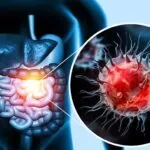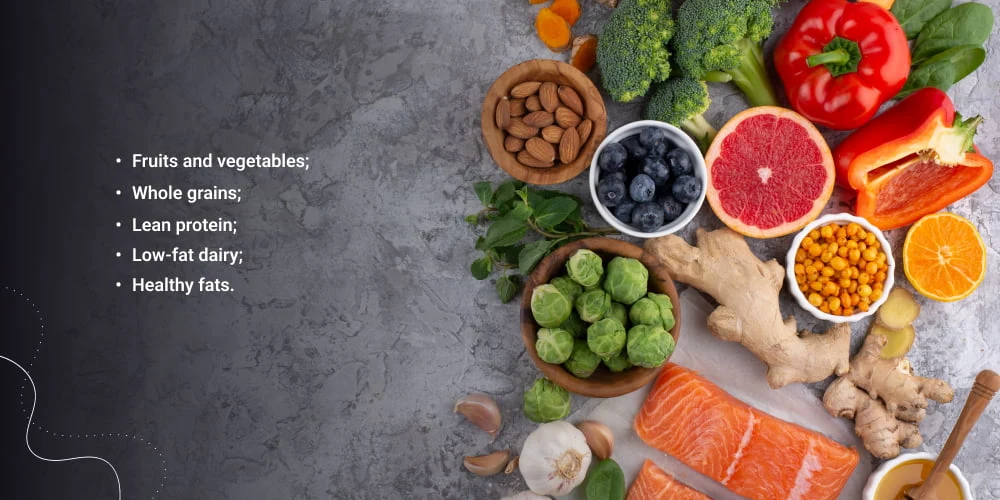Low-carb diets may raise colorectal cancer risk
Low-carb diets, including the popular keto diet, have gained significant attention in recent years due to their potential benefits for weight loss and overall health.
However, many experts are concerned about the long-term health effects of such restrictive eating patterns. One area of particular interest is the potential link between low-carb diets and an increased risk of colorectal cancer.
A recent study conducted by researchers at the University of Toronto in Canada sought to investigate how low-carb diets may raise colorectal cancer risk by influencing gut bacteria. The study involved experiments on mice, which were fed different types of diets—low-carb, standard, and Western-style diets—while also being exposed to various bacterial strains.
The researchers specifically examined how dietary changes affect certain bacteria known to play a role in colorectal cancer development. Their findings revealed that a specific strain of Escherichia coli was negatively impacted by low-carb diets.
Notably, the study showed that these dietary changes contributed to an increase in the formation of polyps, some of which have the potential to progress into colorectal cancer.
These findings add to the growing concerns about the long-term impact of carbohydrate-restrictive diets. While low-carb diets may offer short-term benefits, their potential role in altering gut bacteria and increasing colorectal cancer risk warrants further research and consideration.
How Certain Bacteria May Lead to Cancer
Colorectal cancer, which affects the colon and rectum, is among the most commonly diagnosed cancers in the United States. Statistics indicate that approximately one in 24 men and one in 26 women will develop colorectal cancer in their lifetime.
Alarming data reveals a significant rise in colorectal cancer cases among younger adults. Between 1999 and 2020, the number of cases in individuals aged 30 to 34 surged by 71%, while those aged 35 to 39 experienced a 58% increase. These trends highlight the growing concern surrounding colorectal cancer risk factors, including dietary choices and gut microbiota.
According to the Centers for Disease Control and Prevention (CDC), the five-year survival rate for colorectal cancer stands at 64.4%. While complete prevention is not guaranteed, several lifestyle modifications can help lower the risk. These include:
- Quitting smoking
- Reducing alcohol consumption
- Following a diet rich in vegetables, fruits, and whole grains
- Limiting processed foods and red meat
Given that dietary habits may influence colorectal cancer development, researchers have been exploring the connection between certain diet patterns and gut bacteria. In particular, a recent study investigated whether low-carb diets may raise colorectal cancer risk by altering bacterial composition in the gut.
The study focused on three specific bacterial strains—Bacteroides fragilis, Helicobacter hepaticus, and Escherichia coli—which were introduced into mice. Researchers observed that these microorganisms can cause DNA damage in intestinal epithelial cells, either directly by producing genotoxins or indirectly by triggering inflammation that leads to genetic mutations.
To assess how diet plays a role in bacterial activity and cancer risk, the researchers examined mice that were fed different dietary patterns, including low-carb and low-fiber diets, standard diets, and Western-style diets high in fat and sugar.
Their findings further support concerns that low-carb diets may raise colorectal cancer risk by negatively impacting gut bacteria, potentially increasing susceptibility to cancerous growths.
These insights reinforce the importance of a balanced diet that promotes gut health, highlighting the need for further research into how dietary choices influence long-term cancer risk.
Coli and Low-Carb Diets May Raise Colorectal Cancer Risk
To better understand the relationship between diet, gut bacteria, and colorectal cancer risk, researchers conducted a study in which mice were fed specific diet types over a period of nine weeks. They then measured polyp development at both the nine-week and sixteen-week marks to assess the impact of different dietary patterns on colorectal cancer risk.
Among all the diet and bacteria combinations tested, only the group of mice fed a low-carb diet in combination with Escherichia coli (E. coli) showed a significant increase in the risk of colorectal cancer. This finding is particularly concerning since previous studies indicate that E. coli is present in approximately 60% of colorectal cancer cases.
Mice that consumed a low-carb diet while being exposed to E. coli exhibited a higher number of polyps and tumors—both of which can elevate the likelihood of developing colorectal cancer. Additionally, these mice displayed DNA damage and other biological markers associated with cancer progression.
One of the key findings of the study was that low-carb diets thinned the protective mucus layer in the colon, which typically acts as a barrier against harmful microbes. In mice carrying E. coli, this thinning allowed colibactin—a genotoxin produced by the bacteria—to reach colon cells. Colibactin is known to cause DNA damage, increasing the risk of cancerous mutations.
Beyond direct DNA damage, the study also found that mice on a low-carb, low-fiber diet experienced increased cell senescence, a biological process that can contribute to cancer development.
Furthermore, these mice exhibited reduced regulation of gut health, leading to chronic inflammation—a known factor in colorectal cancer progression.
The researchers concluded that the combination of E. coli and a low-carb diet disrupted the gut microbiome so severely that it created an environment conducive to colorectal cancer development. However, there was a promising discovery: adding fiber to the diet significantly reduced tumor formation and helped control inflammation.
Given these findings, the researchers plan to continue their investigation to determine whether specific types of fiber offer greater protection against colorectal cancer.
Additionally, future studies will focus on translating these results to human subjects to better understand how diet and gut bacteria interact to influence colorectal cancer risk.
These findings underscore the importance of maintaining a well-balanced diet, as restrictive eating patterns—such as low-carb diets—may raise colorectal cancer risk by altering the gut microbiome and promoting harmful bacterial activity.
Dietary Changes That May Help Lower Cancer Risk
Marianne Cusick, MD, an associate professor of colon and rectal surgery at UTHealth Houston, weighed in on the study’s findings. Although she was not involved in the research, she acknowledged its significance in shedding light on how dietary choices may influence colorectal cancer risk.
“The mouse study highlighted in the article suggests a significant potential link between low-carb diets, colibactin-producing E. coli, and colorectal cancer,” Cusick explained in an interview with Medical News Today. “The researchers found that a low-carb diet paired with a strain of E. coli that produces colibactin led to the development of colorectal cancer in mice.”
She further elaborated that the gut environment created by a low-carb, low-fiber diet—when combined with E. coli—resulted in increased gut inflammation, a weakened mucus barrier, and a greater occurrence of polyps, which are known precursors to cancer.
These findings reinforce concerns that low-carb diets may raise colorectal cancer risk by altering the gut microbiome in harmful ways.
While Cusick described the study as “exciting and compelling,” she emphasized that additional research is necessary before these results can be directly applied to humans.
Given that the study underscored the importance of a strong and healthy mucus barrier in the colon, Cusick suggested that increasing fiber intake may be a key dietary change to help lower colorectal cancer risk. Certain types of fiber have been shown to support gut health, enhance mucus production, and reduce inflammation, all of which contribute to a lower likelihood of cancer development.
Maintaining a balanced diet rich in fiber—such as fruits, vegetables, whole grains, and legumes—may help counteract some of the negative effects associated with low-carb diets and protect against colorectal cancer. As research continues, experts hope to determine which specific types of fiber offer the most protective benefits against gut inflammation and cancer risk.
“Soluble fibers, such as inulin, pectin, and beta-glucan, found in grains, fruits, and vegetables, are particularly beneficial. These fibers are fermented by gut bacteria, producing short-chain fatty acids (SCFAs) like butyrate, which strengthen the mucus layer and support gut health.”
— Marianne Cusick, MD
Expert Insights on the Study Findings
Dr. Nilesh Vora, a board-certified hematologist, medical oncologist, and medical director of the MemorialCare Todd Cancer Institute at Long Beach Medical Center, also shared his thoughts on the study. Though not directly involved in the research, he recognized its potential significance in understanding colorectal cancer risk.
“I think this can be thought of as hypothesis-generating,” Vora stated in an interview with Medical News Today. “There may be a true link here that could explain the incidence of colorectal cancer.”
While he agreed that more research is necessary to establish a definitive connection, Vora highlighted that the gut microbiome is an increasingly popular area of study regarding its role in colorectal cancer development. He emphasized that as research progresses, more insights will emerge about how factors such as diet and gut bacteria interact to influence cancer risk.
Given the study’s findings, concerns that low-carb diets may raise colorectal cancer risk remain an important topic for further exploration. Ongoing research into the gut microbiome may provide deeper insights into preventive strategies and dietary recommendations to reduce colorectal cancer risk in the future.
Conclusion
The growing body of research on the relationship between diet, gut bacteria, and colorectal cancer highlights the importance of maintaining a balanced and fiber-rich diet. While low-carb diets have gained popularity for weight management and other health benefits, emerging evidence suggests they may raise colorectal cancer risk by altering the gut microbiome and weakening the protective mucus barrier in the colon.
The recent study on mice demonstrated a concerning link between low-carb diets, E. coli, and increased tumor formation, reinforcing the need for further investigation.
Experts acknowledge that more research is required to confirm these findings in humans, but they emphasize the significance of dietary choices in supporting gut health and reducing inflammation. Incorporating fiber-rich foods—such as fruits, vegetables, whole grains, and legumes—may play a key role in protecting against colorectal cancer.
As scientific understanding of the gut microbiome advances, future studies may offer clearer guidance on how to optimize diet for cancer prevention.
Ultimately, while low-carb diets may offer certain benefits, individuals should consider their potential long-term effects on gut health and cancer risk. A well-balanced diet, rich in fiber and nutrients, remains one of the most effective ways to support overall health and reduce the likelihood of colorectal cancer.
How to Cure Yeast Infection at Home
How to lower cholesterol without medication

A graduate of Computer Science and Information Management Technology. Diploma – Caregiving, Certificates – Dementia and Diabetes Awareness and Management. A researcher, blogger, songwriter, singer and acoustic guitarist. Born in an environment where natural talents such as healing are imparted at our natural birth. This natural talents of healing is the result of our genetic inheritance and the training from family environment.























